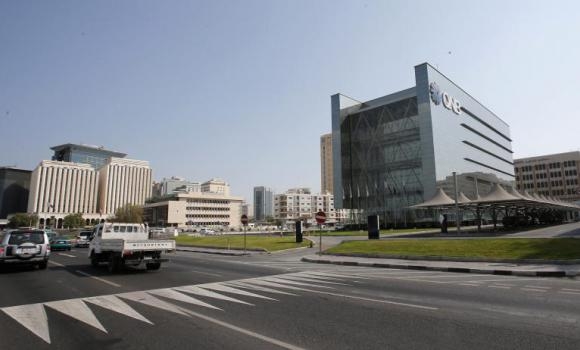Qatari banks are bulking up to play a role in funding the country's massive infrastructure expansion. But in a country which is already overbanked by some measures, they may risk becoming too big.
Doha Bank, Qatar's fifth-largest lender by market value and part-owned by the country's sovereign wealth fund, announced plans in October to increase its share capital by 50 per cent in the first quarter of next year, raising about $1.6 billion.
Other Qatari banks have tapped debt markets this year. Qatar Islamic Bank, the country's largest Islamic lender, returned to the global debt market after a two-year absence with a $750 million sukuk sale earlier this month.
Qatar International Islamic Bank followed a week later, pricing its debut $700m, five-year sukuk. Doha Bank also raised $500m from a bond sale in March.
For the infrastructure projects, local banks want to be in the game, and they will be given priority by the government
"For the infrastructure projects, local banks want to be in the game, and they will be given priority by the government," said The First Investor acting head of asset management Robert Pramberger. "They need to get the money from somewhere, and they'll want it to be an equal combination of debt and equity."
An analyst with a Qatari bank said he believed the central bank would want to make sure that local lenders took a large slice of the infrastructure business, rather than leaving it to foreign banks. "There will be a huge incentive for local lenders to raise capital to meet the demand. Banks here are hoping to make quite a lot of money.
The central bank and other authorities are encouraging local banks to bolster their balance sheets
"I'm sure the central bank and other authorities are encouraging local banks to bolster their balance sheets, so that they can take advantage of project bonds and other opportunities."
The Qatari government has allocated 40pc of its budget between now and 2016 to fund a string of mega projects, including $5.5bn for a deepwater seaport, $20bn for roads and a $17.5bn new airport.
It also aims to build a $36bn metro in Doha that will link stadiums for the 2022 World Cup soccer tournament, as well as a 490km rail line linking Saudi Arabia and Bahrain through Qatar as part of a planned regional network.
Infrastructure spending will average over 10% of gross domestic product ahead of the World Cup
Infrastructure spending will average over 10pc of gross domestic product ahead of the World Cup, with activity in the construction sector likely to peak around 2015, the state planning authority has said.
"Qatari banks have a great opportunity with the financing of infrastructure projects," said a second analyst with a Doha-based bank.
"They will have a major home-player advantage in pricing the risk of particular loans, and understanding when and if there is an effective government guarantee to a project and when there isn't."
Qatar National Bank, the country's largest bank, had total assets of $96.4bn at the end of September, the bank said – much smaller than levels of around $2 trillion for the top international banks
Exploiting this advantage will not be simple, however. Qatar National Bank, the country's largest bank, had total assets of $96.4bn at the end of September, the bank said – much smaller than levels of around $2 trillion for the top international banks. Commercial Bank of Qatar, the second biggest, had assets of $21bn.
"Every contractor will have to post a performance bond, and most local banks won't be able to carry that themselves. They'll need working capital to get into the performance bond business," the second analyst said.
Gulf Daily News
1 November






















































